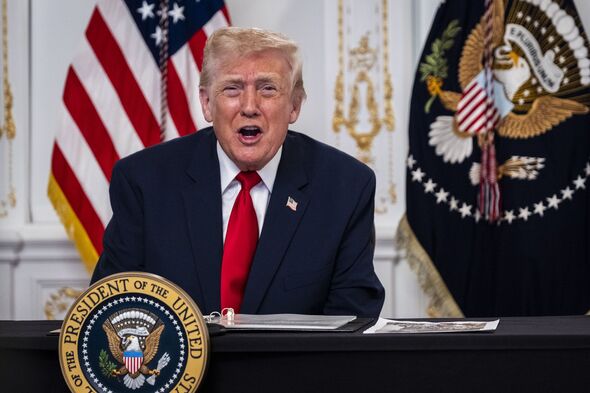U.S. President Donald Trump announced on Sunday that Americans will receive direct payments of at least $2,000 funded by revenue generated from tariffs imposed on foreign trade partners. In a post on his Truth Social platform, Trump asserted that the tariff revenue will also be utilized to reduce the national debt and invest in domestic initiatives.
Trump emphasized the effectiveness of the tariffs, stating, “People that are against Tariffs are FOOLS!” He proclaimed that the United States is “now the Richest, Most Respected Country In the World, With Almost No Inflation, and A Record Stock Market Price.” He highlighted the current state of Americans’ retirement savings, noting that “401k’s are Highest EVER.”
The President cited a September 2023 report from the U.S. Treasury Department, which indicated that approximately $195 billion in customs duties had been collected during the first three quarters of the fiscal year. Trump explained that the government is “taking in Trillions of Dollars” and plans to address the nation’s substantial debt, currently standing at $37 trillion.
In addition to Trump’s announcement, the idea of redirecting tariff revenue to American citizens has been previously proposed. Earlier this year, Sen. Josh Hawley (R-Mo.) introduced the American Worker Rebate Act, which suggested that the Treasury Department should deposit $600 into qualifying bank accounts for each adult and child. To qualify, individuals would need to earn less than $75,000 annually, while couples filing jointly must have an income below $150,000. Higher earners would receive reduced payouts, but the bill has since stalled in Congress.
As the federal government enters day 40 of its ongoing shutdown, the likelihood of any legislative movement on this proposal appears low. Lawmakers will need to reach an agreement on a plan to resolve the current impasse before any action can be taken.
While Trump’s tariff strategy has generated significant revenue, it has also led to increased costs for consumers as some companies have passed on the tariff expenses. Whether the promised payments will materialize remains uncertain, contingent on both legislative developments and the broader economic landscape.







